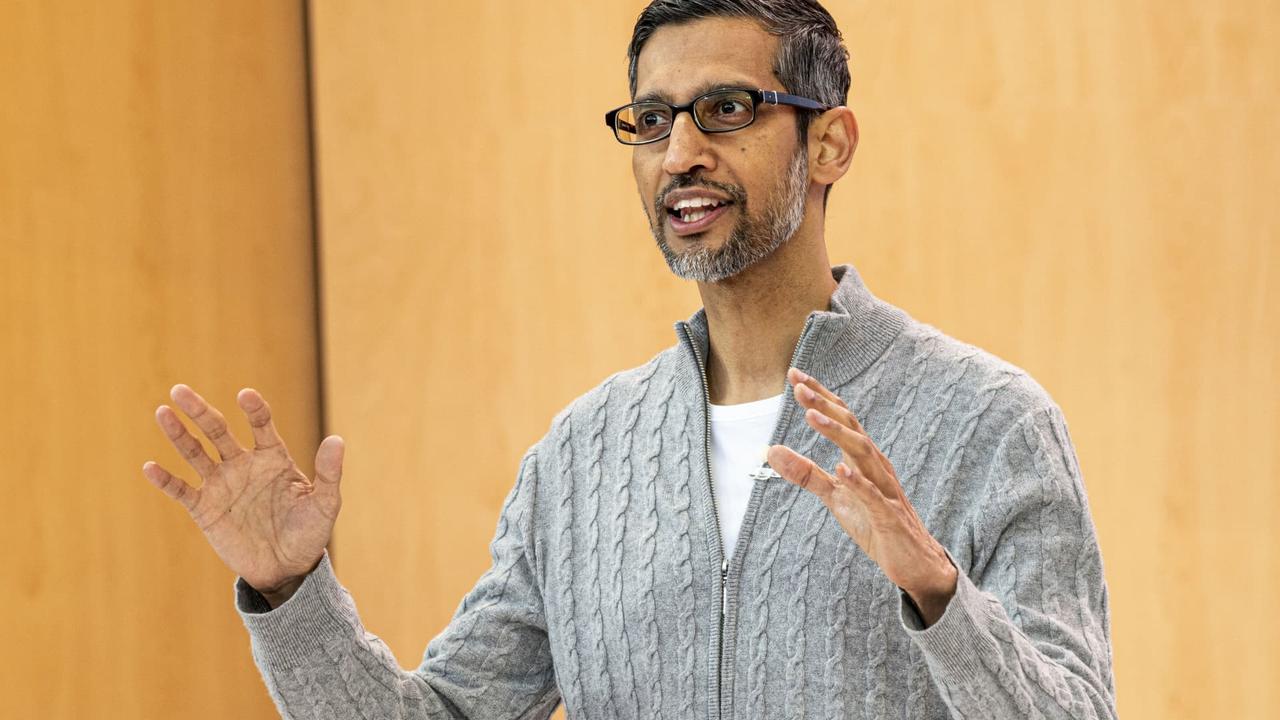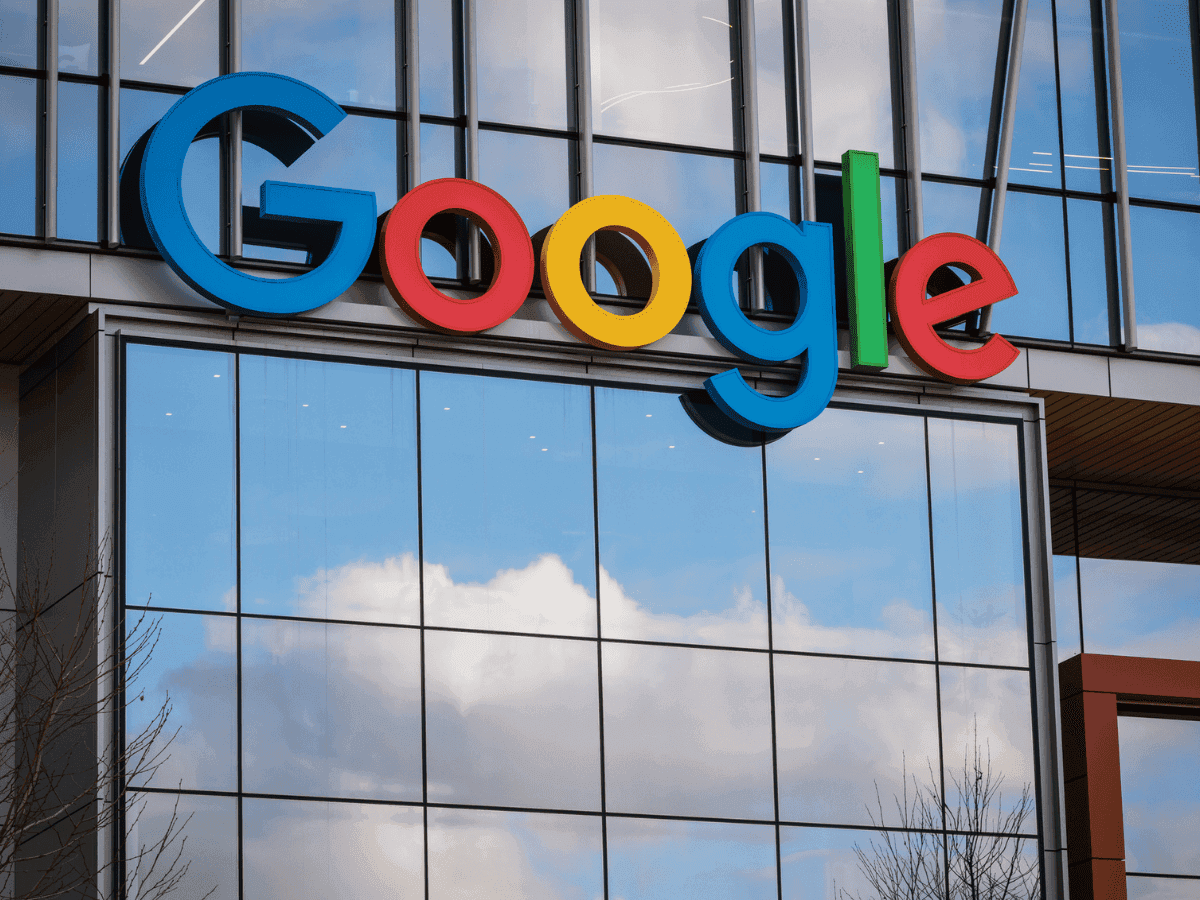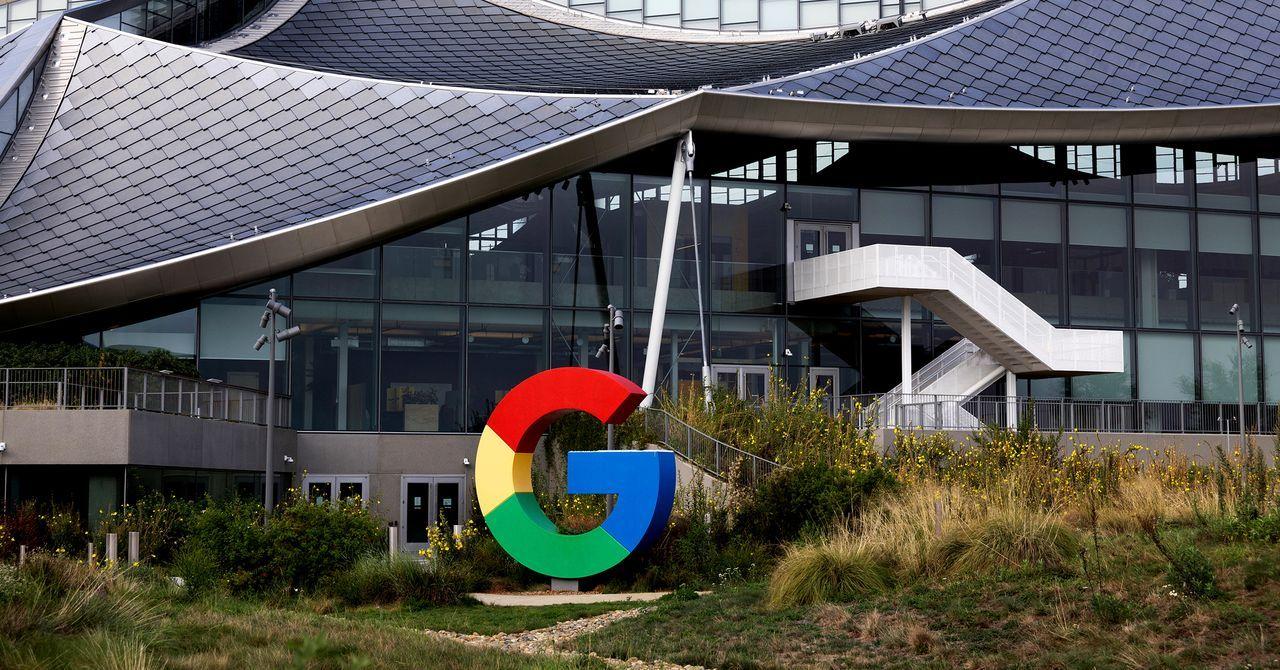Alphabet Reaffirms $75 Billion AI Investment Despite Economic Uncertainties
6 Sources
6 Sources
[1]
Alphabet CEO reaffirms planned $75 billion capital spending in 2025
Las Vegas, April 9 (Reuters) - Alphabet (GOOGL.O), opens new tab reiterated on Wednesday it would spend about $75 billion this year to build out data center capacity, doubling down on its generative AI bet even as the payoff remains unclear and a global trade war threatens to raise costs. The investment would fund the chips and servers needed to burnish its core offerings, including Search, while supporting the development of AI services such as its Gemini model, CEO Sundar Pichai said at the annual conference for Google's cloud computing unit. "The opportunity with AI is as big as it gets," he said, adding the investments would also benefit the company's enterprise customers. "Getting advances into the hands of both consumers and enterprises is something we are really focused on." Alphabet's shares were up more than 7% in afternoon trading amid a big upward swing in markets after U.S. President Donald Trump announced a 90-day pause on tariffs. The stock had tumbled 8% since April 2, when Trump announced his sweeping tariff plans. Alphabet had outlined plans for its $75 billion outlay in February. The target was 29% higher than what Wall Street analysts had expected at the time. Big Tech companies are pouring hundreds of billions of dollars to build artificial intelligence infrastructure in the country, but investors have been getting increasingly restless over the massive investments, demanding better returns. Reporting by Deborah Sophia in Bengaluru and Kenrick Cai in Las Vegas; Editing by Alan Barona Our Standards: The Thomson Reuters Trust Principles., opens new tab Suggested Topics:Technology
[2]
Google-parent Alphabet holds firm on $75B on AI spend despite Trump tariffs
Alphabet, Google's parent company, has reiterated its plan to spend around $75 billion this year to expand its data center capacity despite growing concerns over U.S. tariffs and the hefty costs tied to AI investments. Investors have been uneasy about the soaring capital expenditures required for AI development, especially as market uncertainty deepens with renewed tariff tensions under U.S. President Donald Trump. CEO Sundar Pichai, making an unexpected appearance at Alphabet's annual cloud conference, said the investment would go toward chips and servers essential for enhancing core products like Search and powering AI tools such as the Gemini model.
[3]
"The opportunity with AI is as big as it gets" - Google CEO Sundar Pichai pledges $75 billion cloud, AI spending spree
"We are excited about the possibilities, and we can't wait to see what you'll build," Pichai says Google's parent company Alphabet has reaffirmed its plans to spend billions on infrastructure capacity to boost the capabilities of AI and cloud computing. Sundar Pichai, CEO of Alphabet, took to the stage at Google Cloud Next 25 in Las Vegas to praise the company's work in the space, and double down on its plans to spend big in the future. The company is set to spend around $75 billion in 2025 alone to keep pushing the boundaries of what is possible with AI, despite worldwide concerns over the global economy. "The chance to improve lives and reimagine things is why Google has been investing in AI for more than a decade," Pichai declared. "We see it as the most important way we can advance our mission to organize the world's information, make it universally accessible and useful with Google Cloud...the opportunity with AI is as big as it gets," he notes. "That's why we are investing in the full stack of AI innovation." This includes the infrastructure powering AI, Pichai added, unveiling plans to spend $75 billion, covering servers and data centers, including powering its AI computer cloud business. "We need our infrastructure to move at Google speed," he added, "with near zero latency, supporting services like search, Gmail and (Google) Photos) for billions of users worldwide." Pichai revealed Google's network now spans more than 200 countries and territories, powered by over two million miles of fiber - and to boost that even further, he revealed Google is making its Cloud Wide Area Network open to businesses which are Google Cloud customers across the globe. "We are excited about the possibilities, and we can't wait to see what you'll build," Pichai concluded. "Our goal is to always bring out latest AI advances into the full layer of our stack, across products and platforms...getting advances into the hands of both consumers and enterprises is something we are really focused on - this is why we are able to innovate at the cutting edge and push the boundaries of what's possible for us and for you - the result: better, faster, and more innovation for everyone."
[4]
Alphabet plans to spend $75 billion on AI data centers this year, amid US tariffs
TL;DR: Alphabet is investing $75 billion to expand its data centers, focusing on AI and cybersecurity despite US tariffs. Google CEO Sundar Pichai emphasizes AI's vast potential, while Google Cloud's Sachin Gupta notes increased hardware costs. Companies like Papa John's and Intuit continue investing in AI for better returns. Alphabet has committed to spending $75 billion on building out its data center capacity, even with all of the hoopla surrounding US tariffs. Google CEO Sundar Pichai said that the $75B investment would buy the chips and build the servers needed to increase Alphabet (Google) and its core offerings, including search, as well as continued support in the development of AI services including its Gemini AI model. Pichai said: "The opportunity with AI is as big as it gets" as a surprise appearance was made at Google's annual conference for its cloud computing unit. When asked about the potential for US tariffs to increase the cost of building out its data centers, Google Cloud infrastructure unit vice president and general manager, Sachin Gupta, said that the cost of importing hardware might increase but customer demand continued to necessitate the increased investment, he told Reuters: "We're all processing what's happening with tariffs". AI represents one of two key areas, joining cybersecurity, where enterprises have continued on with investments even with the macroeconomic uncertainty reports Reuters, with Chiraj Mehta, principal analyst at Constellation Research adding: "Early success from customers who have chosen Google Cloud as their preferred AI platform is reinforcing the case for continued aggressive investment". Reuters reports that even companies like Papa John's -- yeah, the pizza maker -- are using AI in their business, as well as Turbo Tax creator Intuit. Paper John's chief digital officer, Kevin Vasconi, said that he didn't see any slowdown in his company's spending on AI, where he said: "I can get a better return on an AI-based project than I can with any other project right now".
[5]
Alphabet CEO Sundar Pichai reaffirms planned $75 billion capital spending in 2025
Alphabet reiterated on Wednesday it would spend about $75 billion this year to build out data center capacity, doubling down on its generative AI bet even as the payoff remains unclear and a global trade war threatens to raise costs. The investment would fund the chips and servers needed to burnish its core offerings, including Search, while supporting the development of AI services such as its Gemini model, CEO Sundar Pichai said at the annual conference for Google's cloud computing unit. "The opportunity with AI is as big as it gets," he said. Alphabet had outlined plans for its $75 billion outlay in February. The target was 29% higher than what Wall Street analysts had expected at the time. Big Tech companies are pouring hundreds of billions of dollars to build artificial intelligence infrastructure in the country, but investors have been getting increasingly restless over the massive investments, demanding better returns.
[6]
Alphabet reaffirms $75 billion spending plan in 2025 despite tariff turmoil
Las Vegas (Reuters) -Alphabet said on Wednesday it was still committed to spending some $75 billion this year to build out data center capacity despite turmoil over U.S. tariffs and sought to reassure investors that its AI plans were yielding good returns. Investors are fretting about the massive capital costs of AI projects, especially as uncertainty surrounding U.S. President Donald Trump's tariffs roil markets and cloud the economic outlook. CEO Sundar Pichai said the investment would buy the chips and build the servers needed to burnish Alphabet's core offerings, including Search, while supporting the development of AI services such as its Gemini model. "The opportunity with AI is as big as it gets," he said, making a surprise appearance at the company's annual conference for its cloud computing unit. Alphabet's planned capital outlay, first unveiled in February, was 29% higher than what analysts had expected at the time. Asked about the potential for U.S. tariffs to raise the cost of building data centers, Sachin Gupta, vice president and general manager for Google Cloud's infrastructure unit, said the cost of importing hardware might climb but customer demand continued to necessitate the increased investment. "We're all processing what's happening with tariffs," he told Reuters. Trump on Wednesday said he would temporarily lower the hefty duties he had just imposed on dozens of countries, while further ramping up tariff pressure on China. Alphabet's shares closed nearly 10% higher, part of the $1.5 trillion gains in market value for the "Magnificent Seven" tech stocks. A Microsoft executive this week in a LinkedIn post also re-emphasized the company's plans to spend more than $80 billion on AI infrastructure in 2025. Meta Platforms has said it would spend as much as $65 billion. AI represents one of two key areas, alongside cybersecurity, where enterprises have stayed the course on investments despite macroeconomic uncertainty, said Chiraj Mehta, principal analyst at Constellation Research. "Early success from customers who have chosen Google Cloud as their preferred AI platform is reinforcing the case for continued aggressive investment," he said. Customers including TurboTax maker Intuit, pizza maker Papa John's and Verizon spoke at the conference about how AI was helping their businesses. Intuit was "doubling down" on plans to integrate AI into its financial services software, its chief data officer Ashok Srivastava said. Kevin Vasconi, Papa John's chief digital officer, said he didn't see any slowdown in the firm's AI spending, adding "I can get a better return on an AI-based project than I can with any other project right now." Verizon said earlier this week that an AI assistant for the company's customer service representatives built using Google models had cut down on call times and freed them up to sell products to customers, leading to a surge in sales. (Reporting by Kenrick Cai in Las Vegas and Deborah Sophia in Bengaluru; Additional reporting by Jaspreet Singh in Bengaluru; Editing by Sayantani Ghosh and Edwina Gibbs)
Share
Share
Copy Link
Alphabet CEO Sundar Pichai confirms the company's commitment to a $75 billion investment in AI and data center capacity for 2025, emphasizing the vast potential of AI despite global economic challenges and tariff concerns.

Alphabet's Massive AI Investment Reaffirmed
Alphabet, Google's parent company, has reiterated its plan to invest approximately $75 billion in 2025 to expand its data center capacity and advance its artificial intelligence (AI) capabilities. CEO Sundar Pichai, speaking at Google Cloud Next 25 in Las Vegas, emphasized the company's commitment to AI development despite economic uncertainties and potential challenges posed by global trade tensions
1
.The Scale and Scope of Investment
The substantial investment is aimed at funding chips and servers crucial for enhancing Alphabet's core offerings, including Google Search, while also supporting the development of AI services such as the Gemini model. Pichai stated, "The opportunity with AI is as big as it gets," highlighting the company's focus on bringing AI advances to both consumers and enterprises
2
.Infrastructure and Network Expansion
Pichai revealed that Google's network now spans more than 200 countries and territories, powered by over two million miles of fiber. To further boost this infrastructure, Google is making its Cloud Wide Area Network open to businesses that are Google Cloud customers globally. The CEO emphasized the need for infrastructure to "move at Google speed" with near-zero latency to support services like search, Gmail, and Google Photos for billions of users worldwide
3
.Economic Challenges and Investor Concerns
The reaffirmation of this significant investment comes amid growing concerns over U.S. tariffs and the hefty costs associated with AI development. Investors have expressed unease about the soaring capital expenditures required for AI infrastructure, especially as market uncertainty deepens with renewed tariff tensions under U.S. President Donald Trump
4
.Related Stories
Industry Impact and Customer Demand
Despite economic challenges, enterprise demand for AI solutions remains strong. Companies across various sectors, including Papa John's and Intuit, continue to invest in AI for better returns. Kevin Vasconi, chief digital officer at Papa John's, noted, "I can get a better return on an AI-based project than I can with any other project right now"
4
.Market Response and Future Outlook
Alphabet's shares saw a positive response, rising more than 7% in afternoon trading amid a broader market upswing following the announcement of a 90-day pause on tariffs by President Trump. The company's $75 billion investment target, announced in February, was 29% higher than Wall Street analysts had expected at the time
5
.As Alphabet doubles down on its AI bet, the tech giant aims to maintain its competitive edge in the rapidly evolving AI landscape. Pichai concluded, "We are excited about the possibilities, and we can't wait to see what you'll build," signaling the company's optimism about the future of AI innovation and its potential to drive growth across various industries
3
.References
Summarized by
Navi
[2]
Related Stories
Google's $85 Billion AI Investment: A Push for Employee Productivity and Market Dominance
24 Jul 2025•Technology

Google Commits $75 Billion to AI Infrastructure, Emphasizing Long-Term Investment Strategy
09 Jul 2025•Business and Economy

Google's $85 Billion Cloud Investment Signals AI-Driven Growth and Infrastructure Expansion
24 Jul 2025•Technology

Recent Highlights
1
Samsung unveils Galaxy S26 lineup with Privacy Display tech and expanded AI capabilities
Technology

2
Anthropic refuses Pentagon's ultimatum over AI use in mass surveillance and autonomous weapons
Policy and Regulation

3
AI models deploy nuclear weapons in 95% of war games, raising alarm over military use
Science and Research





